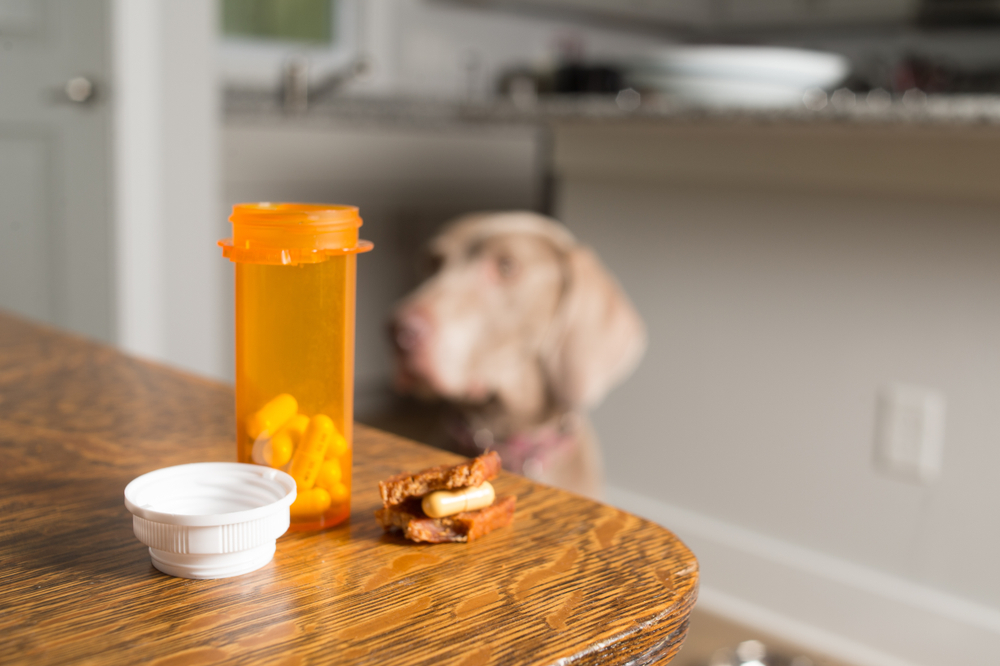10 Tips to Keep Your Pet Safe on July Fourth

July Fourth is around the corner, and you are likely already preparing for the barbecue and fireworks display. However, these festivities can be dangerous and distressing for your precious pet. Our team at Bayside Animal Hospital wants to provide tips to reduce your pet’s anxiety, and ensure their safety during the celebration.
Tip #1: Keep tabs on your pet
A noisy gathering can be a stressful situation for your pet, who may try to escape to a quieter place while you are busy socializing. Take a few precautions to ensure you can locate your pet if they decide to wander. Ensure they are wearing a snug collar with accurate identification tags. Have your pet microchipped, and keep your contact microchip registry information current. This is the best way to reunite with your pet if they are lost. Also, take a picture of your pet so you can post a current photograph should they go missing.
Tip #2: Leave your pet at home
Your pet will be much more comfortable and less stressed in the comfort of their own home. Large crowds, unfamiliar locations, and loud fireworks displays can frighten your pet. Ensure you leave them in a secure area, and leave the television or music on to mask outside noises.
Tip #3: Keep your pet away from the grill
The National Fire Prevention Association recommends keeping pets and children at least three feet from a lighted grill. If your pet accidentally knocks over the grill, they could be burned. The grill droppings may be enticing to your pet, but if your pet ingests this material, they could suffer severe gastrointestinal upset, or possibly pancreatitis.
Tip #4: Do not allow your pet to eat off your plate
Several common human foods are harmful to pets. Feeding your pet bone-in meat can lead to injury to their gastrointestinal tract if the bones splinter. Other foods dangerous for pets include:
- Alcohol
- Avocado
- Chocolate
- Coffee
- Grapes and raisins
- Onions, garlic, chives
- Dairy products
- Macadamia nuts
If your pet ingests a toxic food, immediately contact Bayside Animal Hospital or Animal Poison Control.
Tip #5: Monitor your pet for heat exhaustion
Your pet can easily become overheated on a hot, humid day, because they lack sweat glands, making them more susceptible to heatstroke. Brachycephalic breeds, such as boxers and pugs, are more at risk. Overweight and elderly pets are also more prone to heat problems. Heat exhaustion is a serious condition for your pet, and can be fatal if not addressed promptly. Signs to watch for include:
- Temperature higher than 102.5 degrees—normal temp is 100 to 102.5 degrees
- Excessive panting or drooling
- Weakness
- Vomiting
- Diarrhea
- Sudden collapse
- Seizures
Take your pet to the veterinary hospital immediately if they begin showing heatstroke signs.
Tip #6: Never leave your pet in a parked vehicle
If your pet becomes stressed and upset at a gathering away from home, your vehicle is not an acceptable place for them to stay while you attend the party. Internal temperatures in parked cars can reach 172 degrees. Leaving the window cracked does not lower the interior temperature enough for your pet to be safe.
Tip #7: Keep your pet away from fireworks and sparklers
Fireworks can severely burn your pet, but unlit fireworks also pose a threat. Fireworks contain toxic substances such as potassium nitrate, arsenic, and other heavy metals. In addition, a loud, bright fireworks display may terrify your sensitive pet.
Tip #8: Use behavior modification techniques on your pet to reduce their fear
If your pet has a fear of fireworks, consider desensitizing them with behavior modification. Record firecracker noises, and play the recording at low levels, while feeding them treats or playing their favorite game. Gradually increase the volume over several weeks until they are acclimated to the noise.
Counterproductive approaches include:
- Excessive reassurance — Petting your pet and offering them treats when they are afraid can be interpreted as a reward, and reinforces the fearful behavior. Instead, act normally and ignore the fearful behavior.
- Punishment — Punishment only makes a frightening situation more stressful and upsetting.
- Force to experience the phobia — Placing your pet in a situation where they feel trapped with the cause of their fear may make them resort to aggressive behavior to escape the situation.
Tip #9: Ask if your pet is a candidate for medication
If your pet becomes severely distressed when fireworks go off, ask our team at Bayside Animal Hospital if a mild sedative or anti-anxiety medication would be appropriate. Never give your pet over-the-counter or prescription medications without consulting a veterinary professional.
Tip #10: Check your yard the following day before allowing your pet outside
Fireworks debris may have fallen in your yard from your display, or your neighbor’s. This material can be toxic to your pet.
July Fourth is a time for celebration. Follow these precautions to keep your pet out of harm’s way. However, if your pet does get into trouble, or you would like us to help your pet deal with their fear of fireworks, contact our team at Bayside Animal Hospital.


